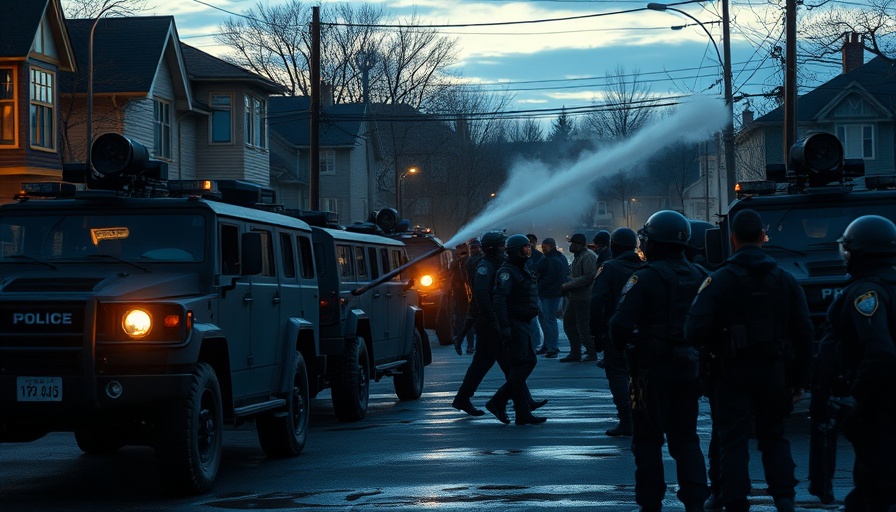
Violent Riots Erupt Over Anti-Migrant Sentiment in Northern Ireland
In a jarring display of anger and violence, neighborhoods in Northern Ireland have been rocked by riots targeting immigrants, illustrating a growing wave of anti-migrant sentiment. These clashes erupted in Ballymena and swiftly spread to nearby Larne, where numerous displays of destruction included the arson of homes and a refuge site recently providing shelter for displaced families.
Reports indicate that violence began following an alleged assault in Clonavon Terrace, which some community members unjustly connected to immigrants. The anger manifested itself in aggressive confrontations with law enforcement and explosions of fireworks, glass, and stones, leaving residents traumatized and fearful. Heavily armored police were deployed as a response to the chaos, as they fought to maintain order in areas that saw a distinctive rise in racial tension among locals.
The Impact of Social Discontent
Throughout history, periods of social upheaval have often highlighted deep-seated issues within communities. The backlash against immigrants in Northern Ireland is not only a reflection of local grievances but also mirrors a broader narrative seen across Europe and beyond. This unrest is fueled by demographic changes and economic uncertainties, as populations grapple with the challenges of integration in the face of perceived threats to cultural identity.
As the violence escalated, riots shed light on the complex tapestry of Northern Irish society. For many families, the tense atmosphere acted as a grim reminder of the region's history of conflict and division.
Broader Consequences of Anti-Migrant Sentiment
The targeting of immigrant families poses significant repercussions not just for those directly affected, but for society as a whole. The refugee shelter set ablaze in Larne exemplifies a troubling trend where vulnerable populations are perceived as threats rather than individuals deserving of support and safe haven.
A chilling reality remains: increased tensions can spiral rapidly, resulting in acts that placate immediate emotions but wreak havoc on community welfare. The displacement of families seeking safety contradicts the very values that should underpin societies—compassion and acceptance.
How can Authorities Respond to Escalating Violence?
In moments of crisis, swift and effective action is paramount. Emergency responders and local authorities must work collaboratively to develop strategies aimed at mitigating further violence. Community dialogues that encourage understanding and healing, alongside proactive measures targeting misinformation, can help diffuse the growing anger.”
Safety initiatives, such as increased police presence during high-tension situations, are essential. However, fostering community engagement and dialogue will be key to addressing the root causes of unrest.
A Call to Compassion and Unity
Amidst the chaos, the need for compassion emerges as vital. Programs promoting integration and mutual respect can cultivate resilience against the growing tide of xenophobia. Schools and local organizations can play a role in fostering environments of understanding, where communities can celebrate diversity rather than fear it. History has shown us that division breeds only more discord; it is only through empathy and engagement that societies can thrive.
Conclusion
The riots in Northern Ireland, with their roots embedded in anger and fear, highlight the urgent need for societal introspection. As communities grapple with the realities of demographic change and the complexities it presents, turning to compassion and understanding becomes imperative. Acts of violence reveal underlying grievances that, if left unaddressed, threaten the fabric of society. It is incumbent upon leaders and community members alike to seek solutions that prioritize healing over hostility, fostering a future that embraces diversity as a strength rather than a challenge.
 Add Row
Add Row  Add
Add 




 Add Row
Add Row  Add
Add 

Write A Comment